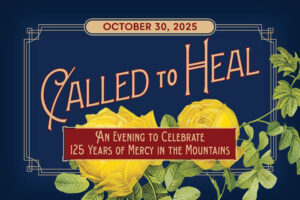Monkeypox
August 5, 2022 by Keely Knopp
The United States is currently experiencing a widespread outbreak of monkeypox, a rare viral infection caused by the same family of viruses that cause smallpox. The country documented its first case on May 17, 2022, and in the months that followed, thousands more have been reported across 48 states.
As of Aug. 1, more than 60 cases have been reported in North Carolina alone, with as many as five coming from the Western region of the state. So, what does all of this mean?
Here at Mercy Urgent Care, we completely understand that, more than two years into the COVID-19 pandemic, news of another virus is likely the last thing you want to hear about. Still, it’s important to be aware — and to know what to do — should you or a loved one begin to exhibit the signs or symptoms of a monkeypox infection. Here are the facts:
What is monkeypox?
According to the CDC, monkeypox symptoms are similar to smallpox symptoms, but milder — and monkeypox is rarely fatal.
The illness typically begins with a fever, followed by a blistering rash. Other symptoms can include: headache, sore throat, cough and swollen lymph nodes. The rash often looks like pimples or blisters, usually appearing on the mouth, face, palms of the hands, soles of the feet and genitalia, and these lesions may be painful or itchy.
Though this may be the first time you’re hearing of it, monkeypox is not a new disease. The virus was first discovered in 1958, affecting colonies of non-human primates kept for research, with the first human case recorded in 1970 in the Democratic Republic of the Congo. It is endemic to several Central and West African countries.
The U.S. first saw an outbreak of monkeypox in 2003, with 47 cases reported across the Midwest. All people infected during this wave became ill after having contact with infected exotic animals, however, and no instances of the infection were attributed to person-to-person transmission.
How does it spread?
Monkeypox spreads in a few different ways, according to the CDC.
It can spread through close, personal, often skin-to-skin contact, including: direct contact with the rash, scabs or bodily fluid of someone who is infected with the illness; contact with objects (such as clothing, bedding or towels) that have been used by someone with monkeypox; or contact with an infected person or animal’s respiratory secretions (coughing, sneezing).
It can also spread through intimate contact during sex, hugging, kissing or prolonged face-to-face contact with someone who is infected. A pregnant person can spread the virus to their fetus through the placenta, as well.
Infected animals can also spread the illness through scratches or bites — and humans can become infected by preparing or eating meat or using products from an infected animal.
A person or animal with monkeypox is contagious from the onset of lesions until all scabs that have formed have fallen off. The illness typically lasts two to four weeks.
Unlike COVID-19, monkeypox is not typically spread through the air, requiring prolonged face-to-face contact to effectively transmit this way. Research suggests that it is also not spread by asymptomatic people.
Treatment
Most patients with monkeypox recover on their own, but the virus can be dangerous for young children, pregnant women and those who are immunocompromised.
While there is no treatment specifically for monkeypox infections, two antiviral medications developed for smallpox have been approved to treat monkeypox. Because the two viruses are genetically similar, these medications can be used to reduce the illness in those who are likely to get severely ill.
Preventative measures
To protect yourself from risk of infection, avoid close skin-to-skin contact with people who have a rash that looks like monkeypox, and avoid contact with objects that a person with monkeypox has used.
Just like with COVID-19, it is important to wash your hands often with soap and water (or use an alcohol-based hand sanitizer), especially before eating or touching your face and after using the restroom.
If you have a new, unexplained rash or other symptoms…
Avoid close contact with anyone until you have been checked by a healthcare professional.
Mercy Urgent Care is able to evaluate and test for monkeypox at all eight of its Western North Carolina locations.

